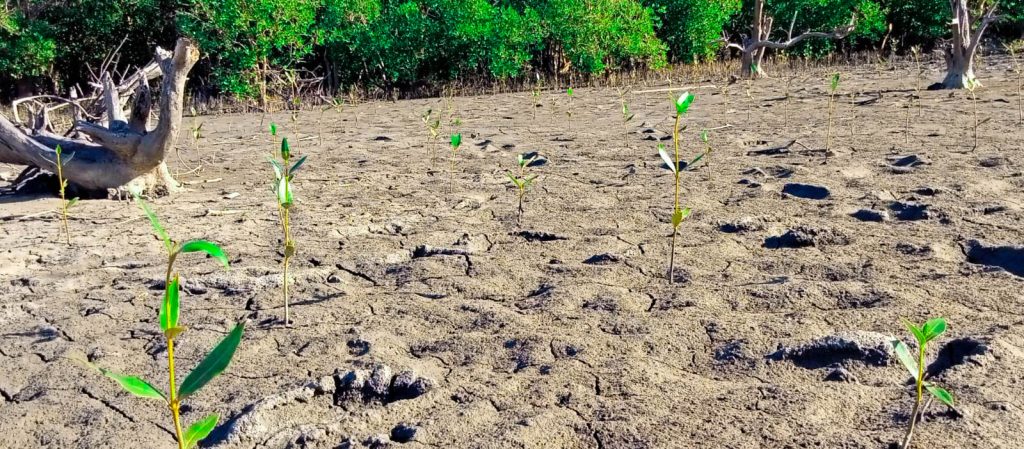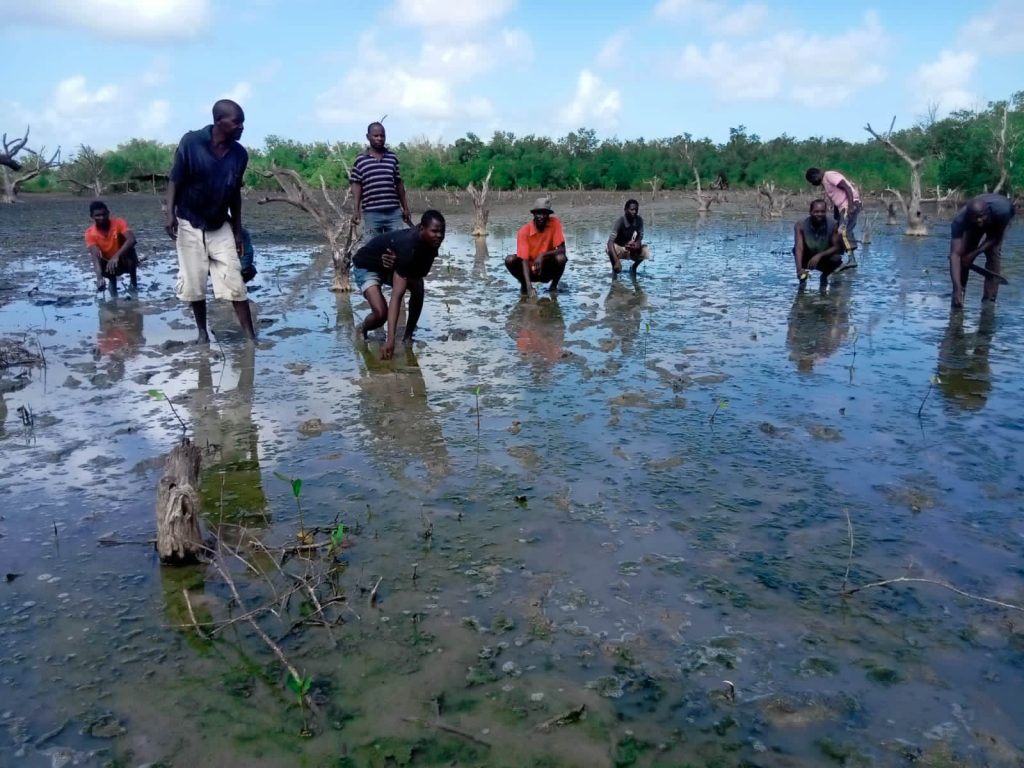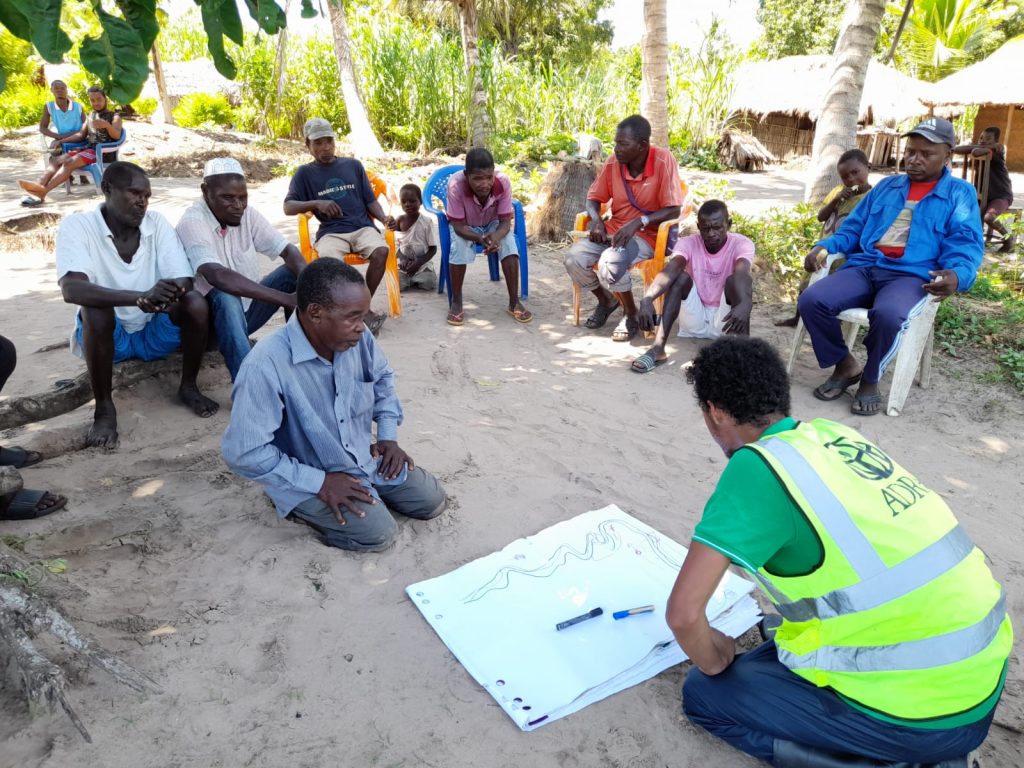ZIREF
ADRA Is Restoring 35.17 hectares of Mangroves in the District of Maganja da Costa, Zambezia Province as part of the ZIREF project
This is your chance to take that life-changing adventure, find your purpose in service, create life-long friendships, and see faith in a new, transformative way. ADRA Connections is ADRA's short-term volunteer program that takes you into the field to put compassion into action and make an impact for communities in need. No experience necessary!

In this first phase, the process of replanting 1.7 hectares of 1,000 mangrove seedlings is underway in the community of Nanene, Administrative Post of Maganja-Sede, and it is expected that, by the end of the project, 35.17 hectares of 19,600 seedlings will have been restored. The main species to be replanted are: Ceriops tagal, Bruguiera gymnorhiza, Heritiera littoralis and Avicennia marina.
This action stems from the fact that many studies point to the extinction of the coastal forest ecosystem in Mozambique. And some of the main factors contributing to this threat of extinction, according to the 2016 Environmental Governance Report, are: a) urban sprawl; b) demand for firewood, charcoal and piles; c) contamination of estuaries by liquid waste; d) in addition to natural phenomena which in turn exert another type of pressure on these coastal ecosystems.
According to ADRA Mozambique environmentalist Alexandre Fumo, four species of mangroves have been identified in the localities of Nanene and Comlene, in Maganja da Costa, most of which are cut down by local communities for domestic purposes, "So far we have identified four species of mangrove plants whose names are: Ceriops tagal, Bruguiera gymnorhiza, Heritiera littoralis and Avicennia marina; in the areas observed, the Avicennia marina species was the most dominant. Traces show that local communities harvest these plants for domestic purposes, such as piles for construction
of houses, producing firewood and charcoal for domestic consumption and sale, as well as medicinal uses."
It is in this context that, as part of the Zambézia Inclusive and Resilient Food Security Project (ZIREF), underway in the districts of Maganja da Costa and Mocuba, ADRA is developing a joint, participatory community plan for the recovery and management of mangrove trees, by raising community awareness, discouraging people from felling and destroying mangrove forests and replanting them.

"Our main priority at the moment is to sensitize communities and discourage them from logging coastal ecosystems, as well as encouraging them to restore them, because logging brings serious environmental consequences and damage, as well as leaving the communities themselves increasingly prone to flooding and more vulnerable to climate change." said the ADRA technician.
For Fumo, in addition to evidence of plant cutting by the communities, it was possible to observe the natural degradation of the ecosystem. This degradation is due to the accumulation of factors such as hydrological changes, lack of connectivity and resilience after anthropogenic invasion, more intense winds and rains resulting from climate change, among other factors.
According to the technician, this intervention by the
ADRA, meetings and simulations have already been held with eighty community leaders who are members of the Natural Resources Management Committees (CGRN ) and the
Risk Reduction Committees (CRR ); and meetings have also been held with the Directors of the District Planning and Infrastructure Service (SDPI) and the District Economic Activities Service (SDAE) at the Maganja da Costa District level, who have shown interest in this intervention.
In the meantime, the SDPI, as well as expressing its satisfaction with the restoration initiative, has also highlighted the scarcity of resources and alternative means as part of the factors that make it impossible for the government to carry out these activities, "We have four employees who deal with environmental issues, but we don't have motorcycles for them to visit the camp. Furthermore, we don't have any alternative means that could help us protect the mangrove, which could include introducing ecological and efficient stoves to reduce the amount of firewood and charcoal exploited by the communities or introducing a program to sell carbon credits." said Jamal Aberson, Director of SDPI at Maganja da Costa.

The three-year ZIREF project (2021 and 2024) is funded by the Canadian FoodGrains Bank and is currently being implemented jointly by ADRA Mozambique in partnership with its counterpart ADRA Canada.
This is your chance to take that life-changing adventure, find your purpose in service, create life-long friendships, and see faith in a new, transformative way. ADRA Connections is ADRA's short-term volunteer program that takes you into the field to put compassion into action and make an impact for communities in need. No experience necessary!
